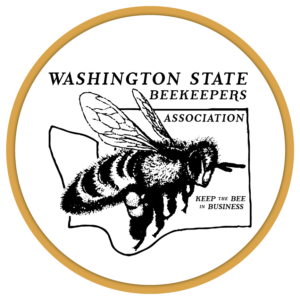Fall 2021 Beekeeper Survey Results
Here are the results, released in July, of the beekeeper survey. There were over 700 participants. Of those, the majority were hobbyists, and much fewer sideliners and commercial beekeepers.
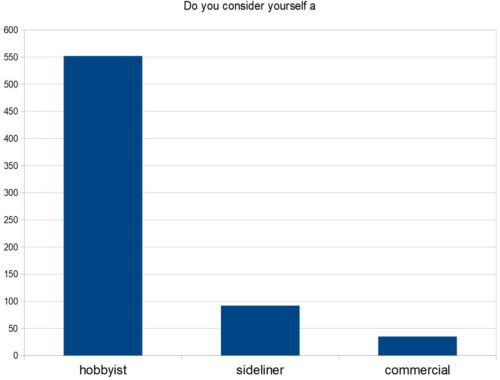
Menu
For those who make income from their bees, honey was the top money maker, with pollination and nuc sales nearly the same:
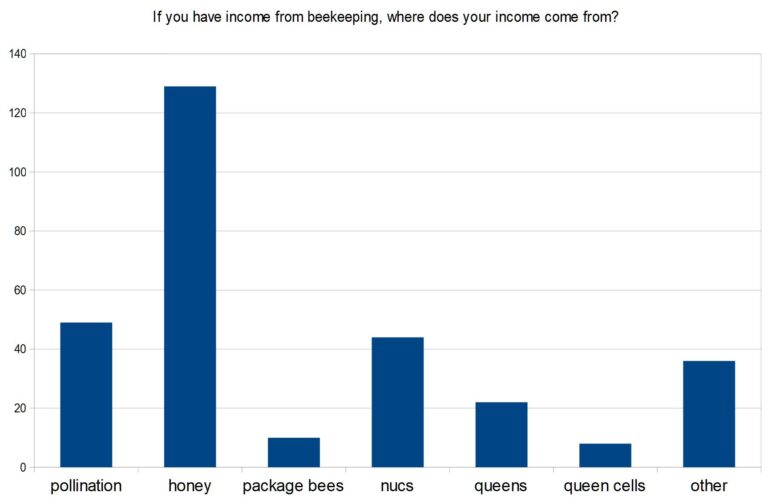
Almost all the beekeepers kept their bees only in Washington. The number of those who move out of state looks about the same as the number of commercial beekeepers:
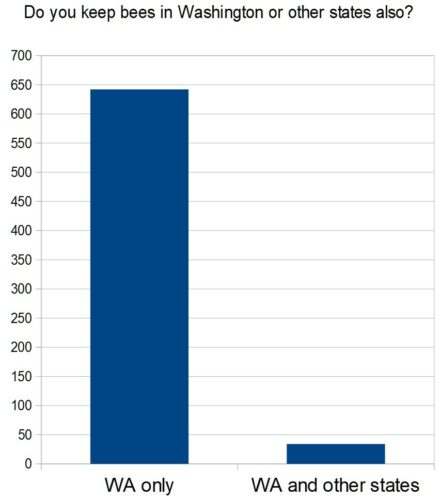
Most beekeepers are in urban settings, although I was surprised that almost as many beekeepers were in rural, non-agriculture settings:
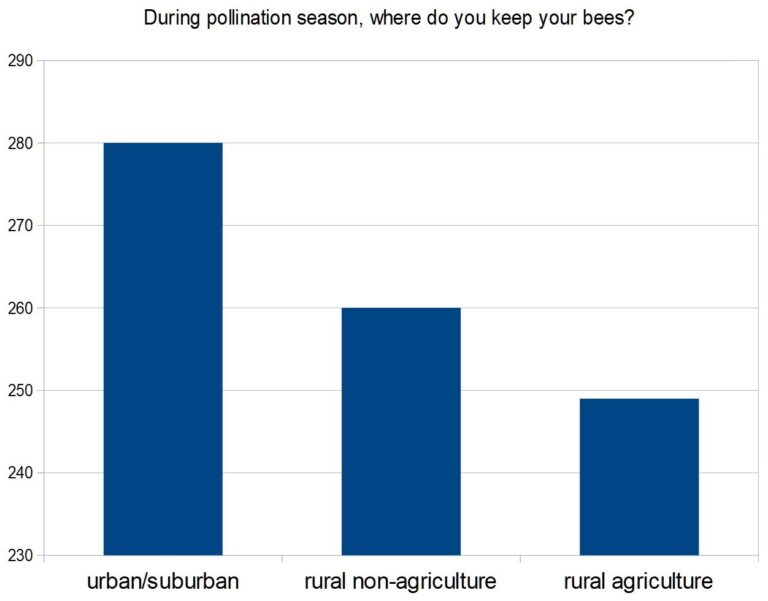
The total is more than the number of surveys returned, so I suppose people have their bees in more than one environment. Those in rural agriculture, especially, must be wary of pesticides in crops.
I'm glad to see so many beekeepers registered with WSDA. By rule, registration funds support honey bee research.
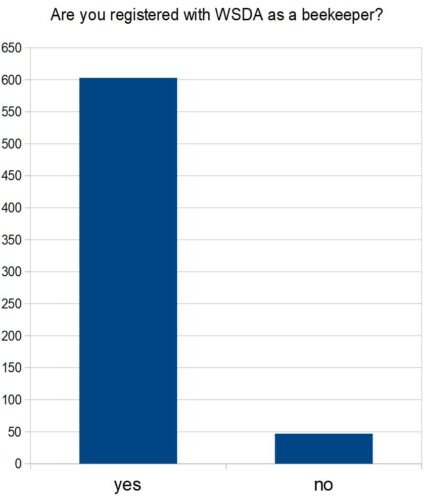
The next parts are the heart of the survey. I hope you're viewing this on a big screen:
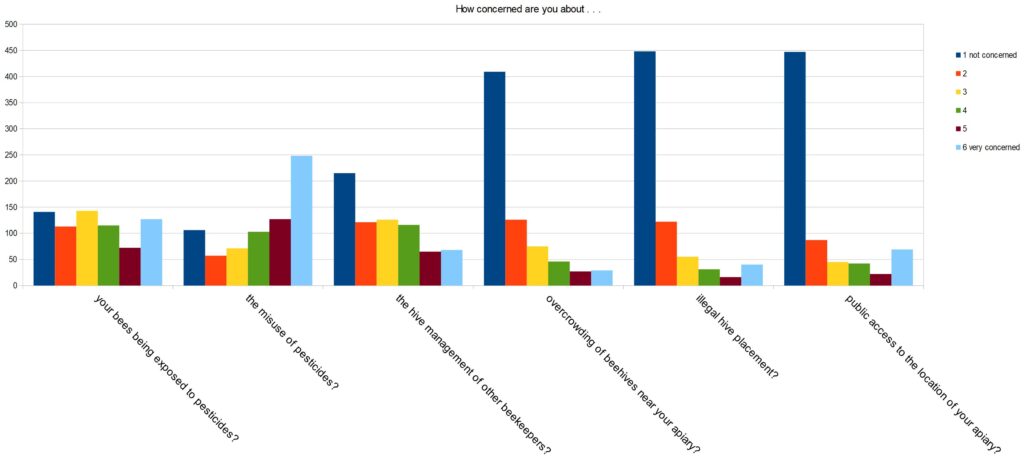
- bees exposed to pesticides? Pretty mixed results there. About the same number of people are not concerned at all as are very concerned.
- the misuse of pesticides? Shows a clear trend that folks are concerned about pesticide misuse.
- the hive management of other beekeepers? Mixed results here also, with the majority of beekeepers not being concerned.
- overcrowding of beehives near your apiary? The majority sees no problem, while only a few do. Those few are in areas of rich forage and other beekeepers have placed hives too close to their apiary and honey production dropped, or are concerned about shared diseases.
- illegal hive placement? Again, most don’t have a problem with that.
- public access to the location of your apiary? Similarly, most beekeepers don’t see public access as a problem. In areas of competition for the best places to put bees, however, some beekeepers indicated they are very concerned about public access to apiary locations. I have asked for this same survey to be presented by demographic (hobbyist/sideliner/
commercial) to see how each issue is viewed by that group. Without knowing that split, I would suppose that those most concerned are those who are trying to make a living in beekeeping.
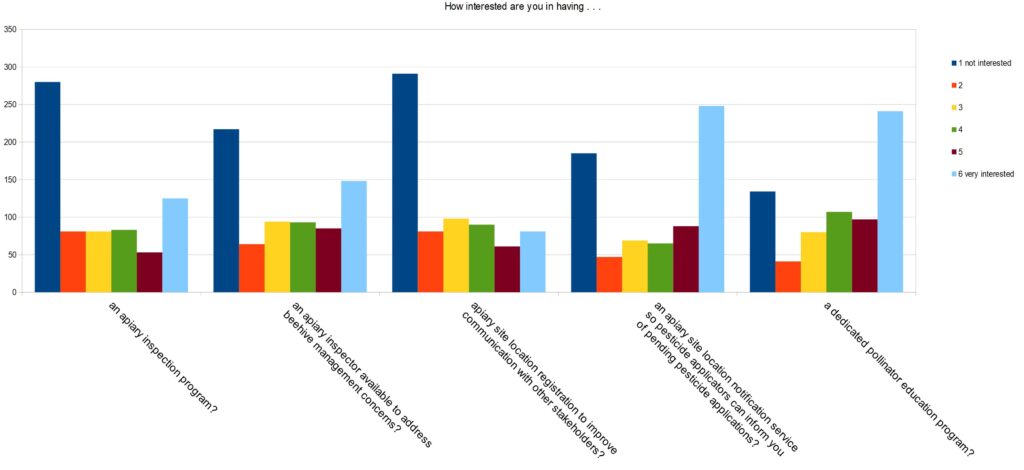
How interested are you in having:
- an apiary inspection program? The majority doesn’t want one, but the next largest group really does. Very divided opinions among beekeepers.
- an apiary inspector available to address beehive management concerns? Very similar to the previous, very divided opinions, with the majority a “no.”
- apiary site location registration to improve communication with other stakeholders? The majority has little interest in this.
- apiary notification service so pesticide applicators can inform about pending applications? The majority wants this, with the next largest group not wanting this at all. This is somewhat surprising, because the majority of beekeepers are in urban areas, where professional applicators already operate with the utmost caution, as there are no notification services in urban areas for the locations of children, pets, pools, and vegetable gardens.
- a dedicated pollinator education program? Again opinions are split, a majority very much in favor with the next largest group not interested at all.
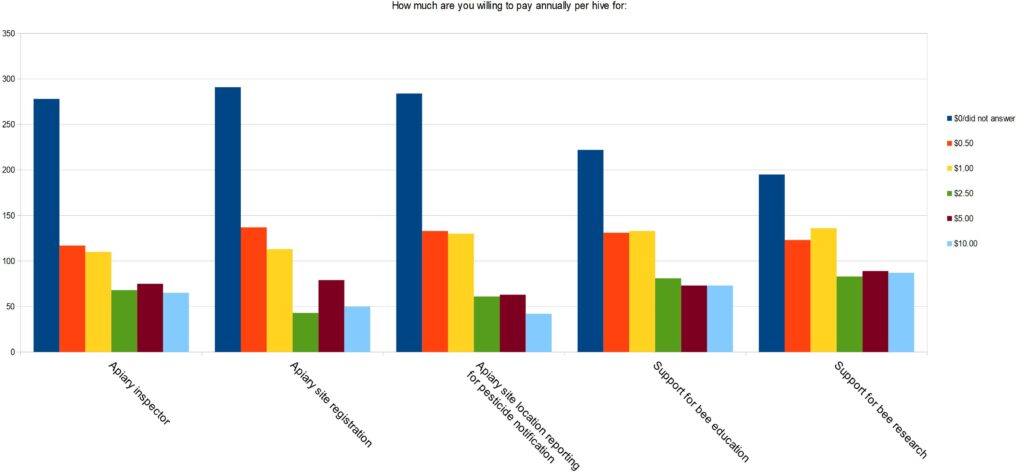
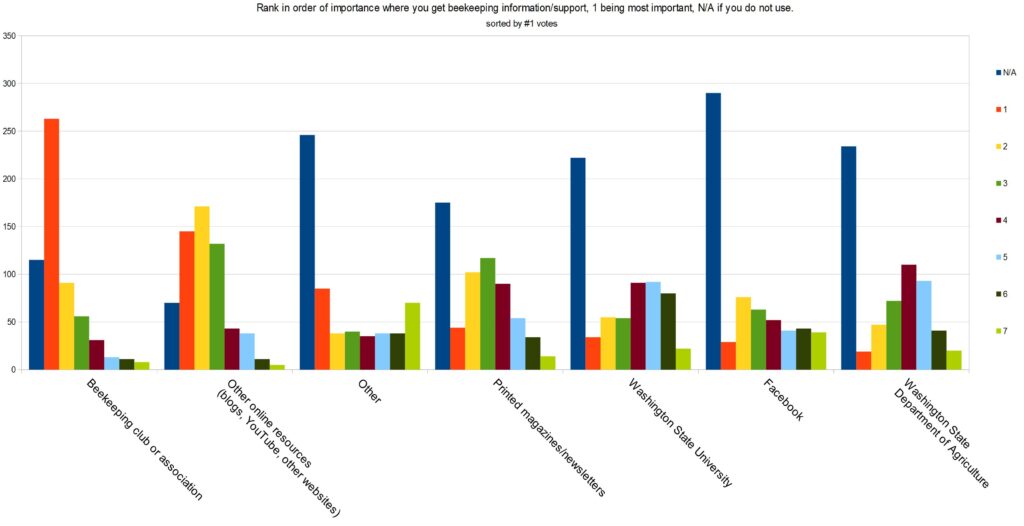
These are arranged by the total of #1 votes, #1 being the most important source of beekeeping information.
Beekeeping clubs or associations were the clear best source, with other online resources coming in second. The third place entry was “other” which I would interpret as including other beekeepers. Although every choice had some votes as “not applicable,” the first and second choices had the fewest “n/a” votes.
I hope this helps you understand how the beekeeping community feels about these proposals. You may have a better idea of what your fellow beekeepers are thinking.
